





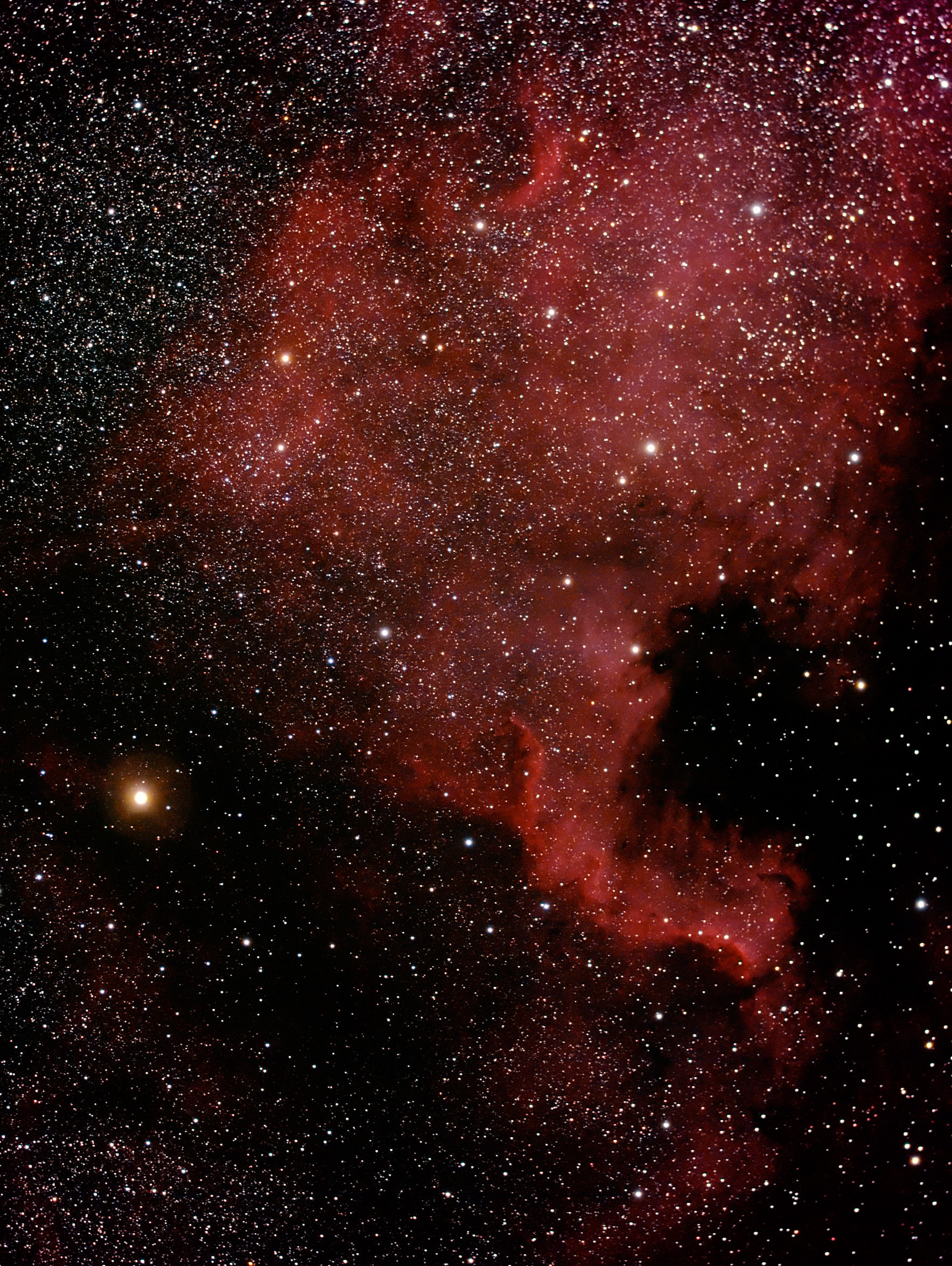
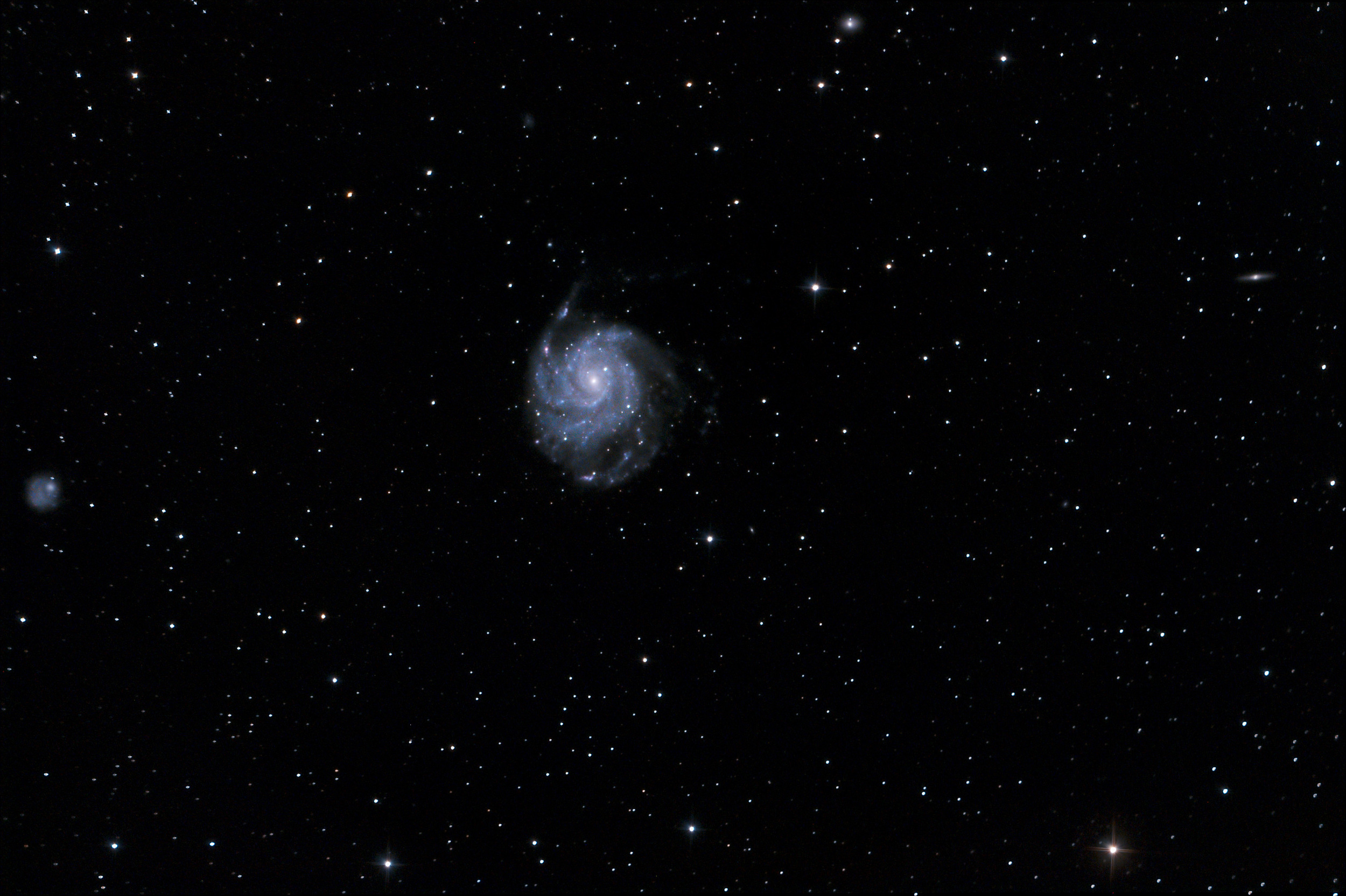

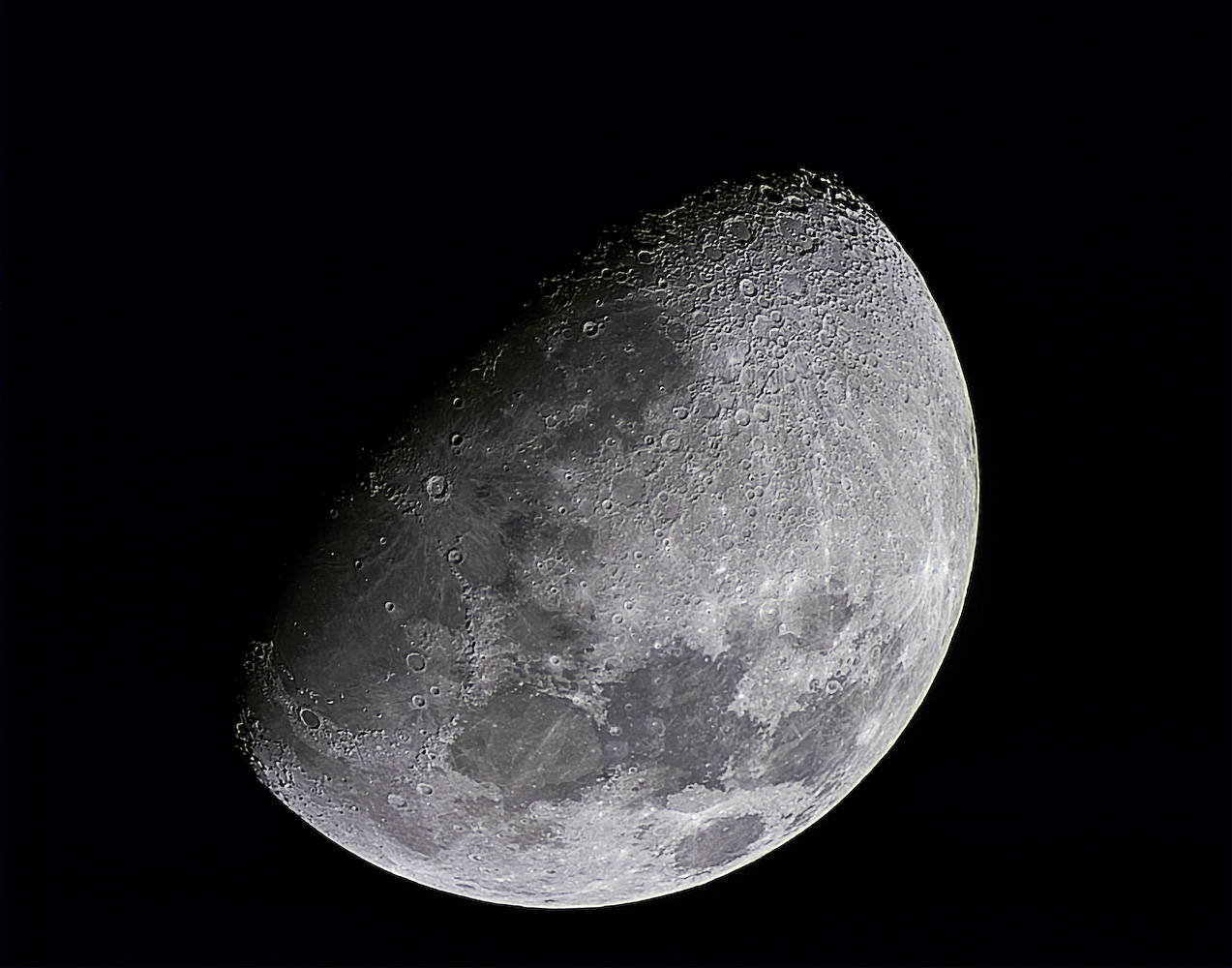

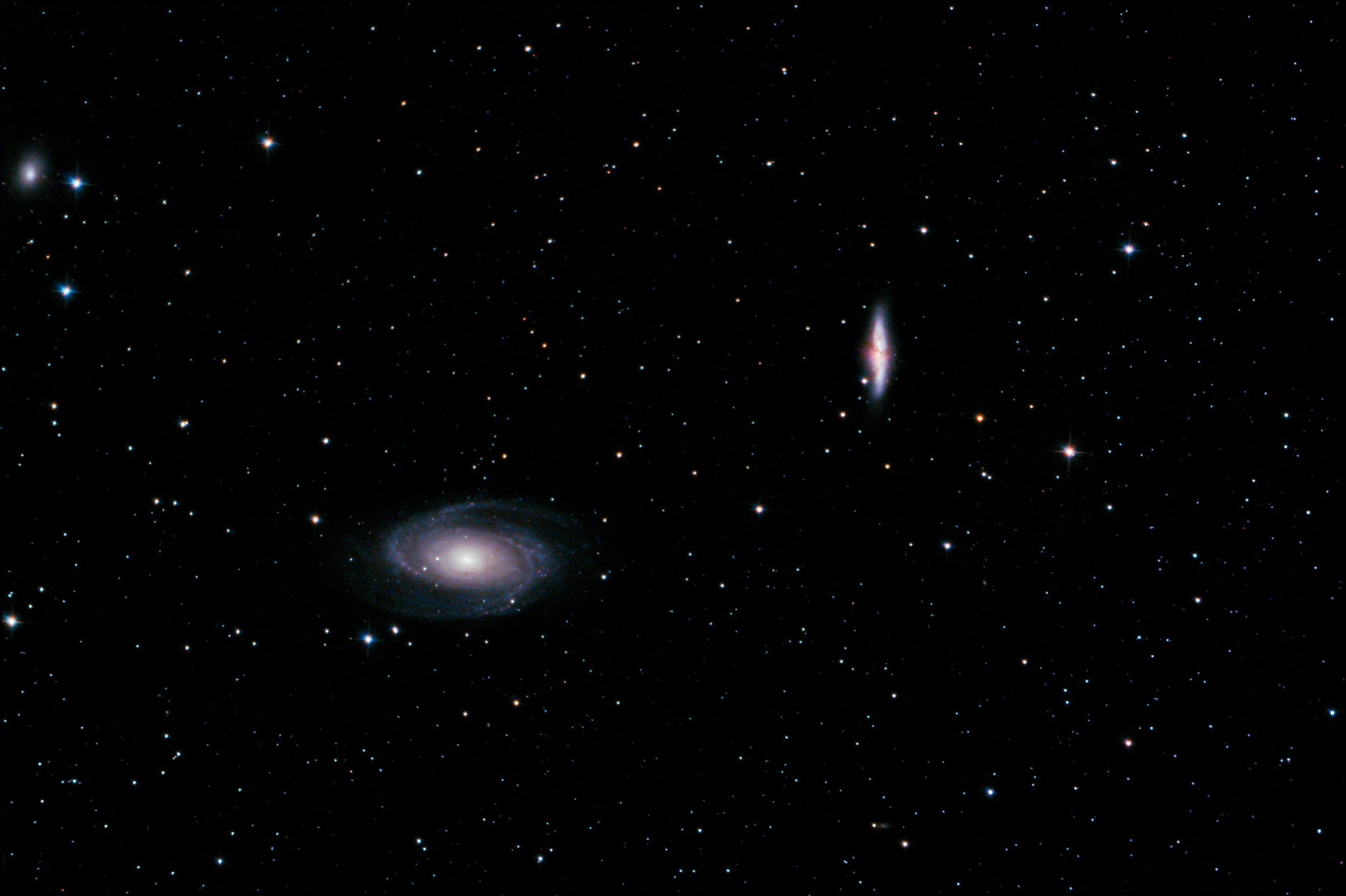
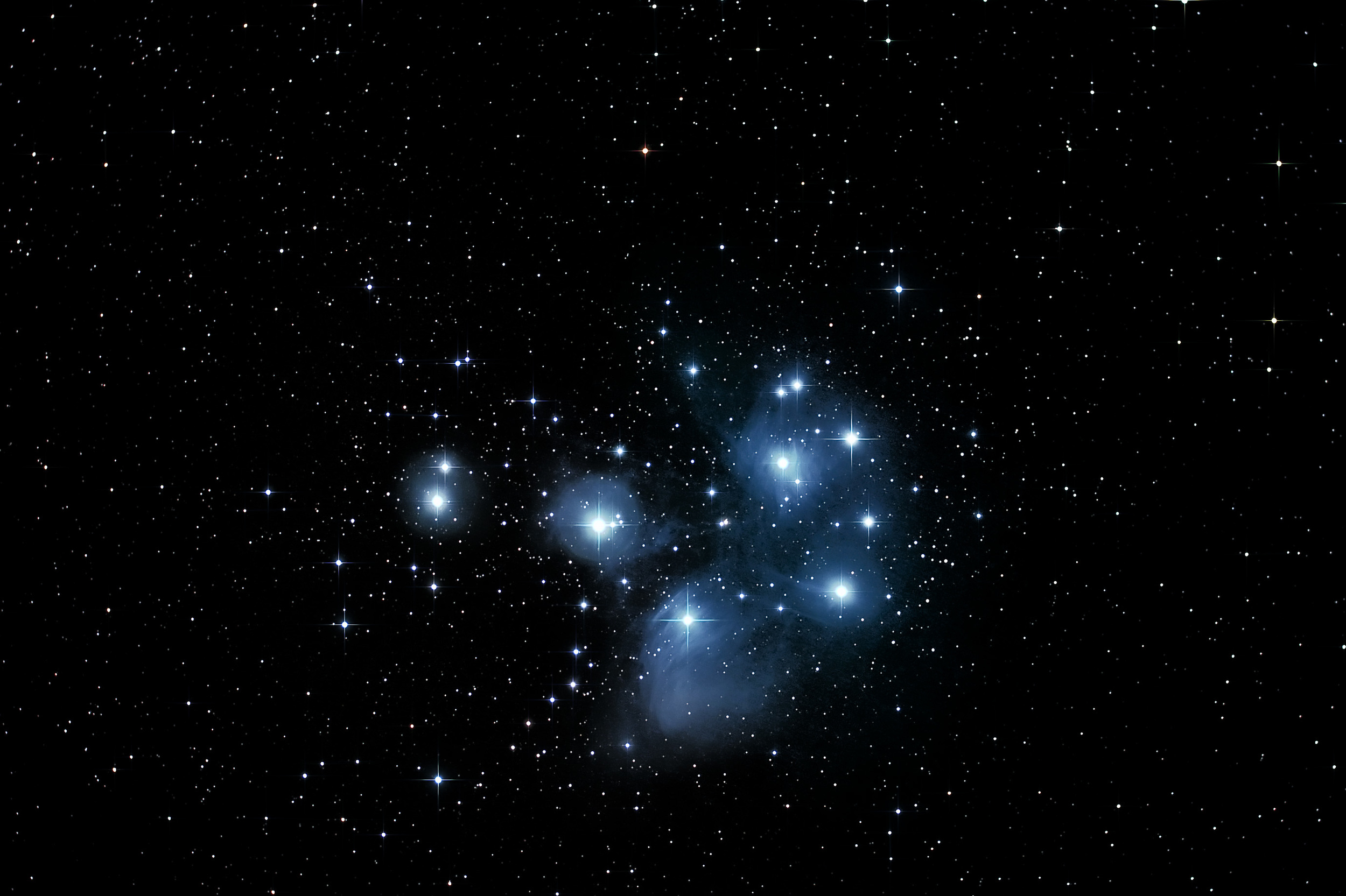
From Wikipedia
IC 5146 is a stellar nursery where star-formation is ongoing. Observations by both the Spitzer Space Telescope and the Chandra X-ray Observatory have collectively identified hundreds of young stellar objects. Young stars are seen in both the emission nebula, where gas has been ionized by massive young stars, and in the infrared-dark molecular cloud that forms the "tail". One of the most massive stars in the region is BD +46 3474, a star of class B1 that is an estimated 14±4 times the mass of the sun.
Carter Lake Observatory
6 hours of 1 minute light frames
Telescope Celestron C8 @ F/7
Starizona SCT reducer corrector
Main Camera ZWO ASI 294 MC Pro
Guide Camera Player One Xena M
Celestron off Axis Guider
Mount CEM 70
From Wikipedia
The Dumbbell Nebula (also known as the Apple Core Nebula, Messier 27, and NGC 6853) is a planetary nebula (nebulosity surrounding a white dwarf) in the constellation Vulpecula, at a distance of about 1360 light-years.[1] It was the first such nebula to be discovered, by Charles Messier in 1764. At its brightness of visual magnitude 7.5 and diameter of about 8 arcminutes, it is easily visible in binoculars[4] and is a popular observing target in amateur telescopes.
Captured over 6 nights in July, August and September at the Carter Lake observatory near Berthoud Colorado.
Total captured time was 18 hours 45 minutes which I whittled down to 7 hours and 38 minutes of quality data for integration.
Equipment used
Celestron C8 Telescope @ f/7
Starizona SCT Reducer Corrector
ZWO ASI 294 MC Pro Color Camera
iOptron CEM 70 Mount
Celestron radial guider
Player One Xena M guide camera
Aurora Colorado 05-10-2024
The Whirlpool Galaxy, also known as Messier 51a (M51a) or NGC 5194, is an interacting grand-design spiral galaxy with a Seyfert 2 active galactic nucleus. It lies in the constellation Canes Venatici, and was the first galaxy to be classified as a spiral galaxy.
Messier 81 (also known as NGC 3031 or Bode's Galaxy) is a grand design spiral galaxy about 12 million light-years away in the constellation Ursa Major. Messier 82 (also known as NGC 3034, Cigar Galaxy or M82) is a starburst galaxy approximately 12 million light-years away in the constellation Ursa Major
The Beehive Cluster is an open cluster in the constellation Cancer. One of the nearest open clusters to Earth